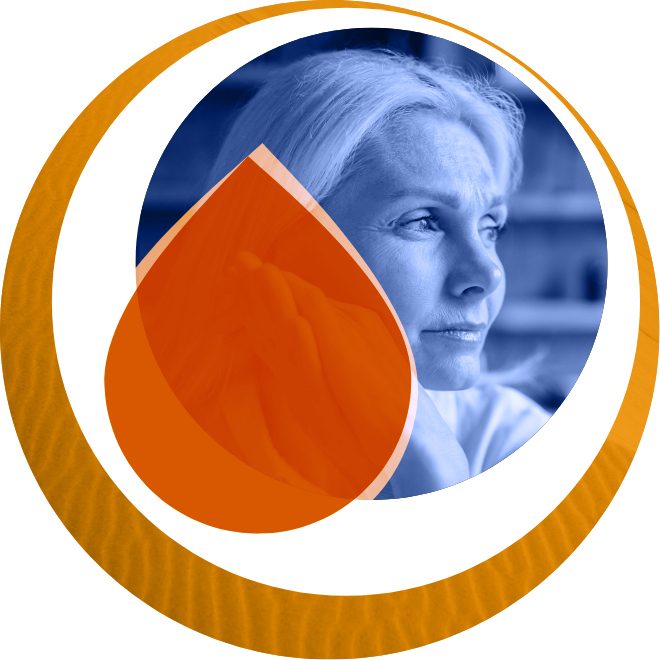
Research Studies Are Enrolling Today. Get Started Now!
Feeling like your Sjogren’s treatments have left you out to dry?
Learn about the PHAETHUSA clinical research study enrolling now.
By completing the online questionaire you can find out if you may qualify.

Right now, the PHAETHUSA clinical research study is evaluating an investigational medication for the treatment of Sjogren’s Syndrome, an autoimmune condition that can cause a range of symptoms, including dry eye/dry mouth. You may qualify to participate in this study if you’ve been experiencing these types of symptoms or have been diagnosed with Sjogren’s for 15 years or less.
Study participation will last up to about 7 months, which will include up to 4-weeks of screening, a 12-week treatment period and 12-weeks of follow-up to monitor how you are doing. During your participation you’ll be required to make regular visits to a study doctor in your area. Of course, you may leave a clinical research study at any time, for any reason.
Why Sjogren’s Research is so important
Sjogren’s Syndrome is much more than just “dry eye.” Other common symptoms include dry mouth, fatigue and joint pain/swollen joints. The two main types are Primary Sjogren’s Syndrome (pSjS) and Secondary Sjogren’s. Unlike the Secondary type, Primary Sjogren’s generally means that it occurs on its own (or without another autoimmune* disease such as Lupus or Rheumatoid arthritis).
That said, Sjogren’s is an autoimmune condition in and of itself, meaning the body’s immune system gets confused and thinks certain tissues (in this case, the glands that produce tears and saliva, for example) are “invaders” similar to a virus or bacteria, so it attacks and damages them. This damage then causes the glands to not work properly, which results in symptoms.
Sjogren’s is estimated to affect up to 4 million Americans—most of whom are women. Yet, other than topical treatments for affected glands (like eye drops), no treatment is approved to treat pSjS’s wide range of symptoms. This is why more options are needed—and clinical studies are how we develop new medicines.
Researchers are assessing an investigational medication
Right now, the Phaethusa clinical research study is enrolling volunteers to help assess an investigational medication in the form of a periodic injection (shot). Participants will have an equal chance of receiving either the investigational medication or placebo (a shot with no medicine). This is because study doctors want to see if the investigational drug helps to control Sjogren’s symptoms better than placebo. If you’re interested in volunteering for this study, click the link to the online questionnaire to get started!
By completing the online questionaire you can find out if you may qualify.

If you participate in this study, you may receive:
- Study drug or placebo
- Study-related care from a local doctor
- Compensation for travel
You may be eligible to participate if you meet these requirements:
- 18-80 years of age
- Experiencing Sjogren’s symptoms (such as dry eye/mouth) OR been diagnosed with Primary Sjogren’s Syndrome (pSjS) for 15 years or less
- Are capable of giving signed informed consent
- Meet all requirements from the questionnaire
The study doctor will check other requirements to make sure that you’re eligible to participate.
How does Study Matching work?
Just takes a few minutes to find and qualify for a study.
- Answer some questions about your health
- Tell us a little bit about yourself
- Connect to available studies in your area
By completing the online questionaire you can find out if you may qualify.
Share
Share on facebook
Share on twitter
Share on linkedin
Share on email
Share on whatsapp